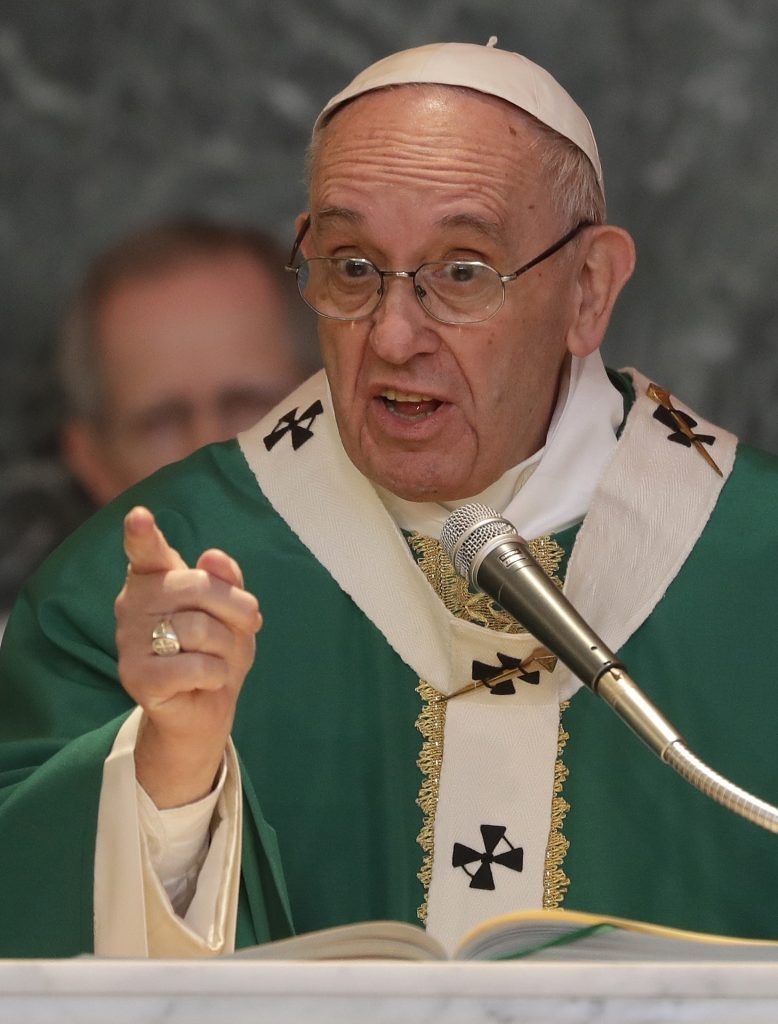Pope Francis Stands Firm: Why His Powerful Stance Against the Death Penalty Matters is a topic that resonates deeply within both religious and secular communities. The Pope's unwavering commitment to abolishing the death penalty reflects a broader ethical stance on human dignity and life itself. This article explores the significance of his declarations and their implications for global justice systems.
As the leader of one of the world's largest religious institutions, Pope Francis has consistently used his platform to advocate for compassion and mercy in the face of crime and punishment. By declaring the death penalty inadmissible, he challenges societies to reconsider their approaches to justice, emphasizing rehabilitation over retribution. This article delves into the theological underpinnings and practical consequences of this pivotal shift in Catholic doctrine.
Pope Francis Reinforces Universal Morality Against Capital Punishment
Pope Francis has taken a bold step by declaring the death penalty inadmissible in all cases, marking a significant change in the teachings of the Catholic Church. Previously, the Church allowed the death penalty under certain conditions, but this new stance aligns with a growing global consensus against capital punishment. By making this declaration, Pope Francis underscores the Church's commitment to the sanctity of life and the inherent dignity of every individual, regardless of their actions.
This shift in doctrine reflects a deeper understanding of human rights and morality. It calls upon Catholics worldwide to reflect on the principles of forgiveness and redemption, central tenets of Christianity. The Pope's decision not only impacts the religious community but also encourages nations to reassess their legal frameworks, promoting more humane forms of justice.
The move towards universal abolition of the death penalty signifies a moral evolution, urging societies to prioritize restorative justice over punitive measures. In doing so, Pope Francis reinforces the idea that true justice involves healing and reconciliation rather than vengeance, setting a powerful example for global leaders.
Infallibility and Doctrine: A Closer Examination
The update to the Catechism regarding the death penalty raises questions about the infallibility of papal decrees. The Church now teaches that the death penalty is an attack on the inviolability and dignity of human life, based on Gospel principles. This doctrinal change highlights the evolving nature of Catholic teachings, adapting to contemporary ethical standards while remaining grounded in core beliefs.
While some may question whether this declaration constitutes an infallible statement, it is clear that Pope Francis's decision is deeply rooted in scriptural tradition. The emphasis on protecting human life aligns with Jesus' teachings of love and compassion, reinforcing the Church's role as a moral compass in modern society.
By addressing the complexities of modern justice systems, Pope Francis demonstrates the Church's willingness to engage with pressing social issues. This approach ensures that Catholic doctrine remains relevant and impactful, guiding followers toward a more compassionate and equitable world.
A Cycle of Revenge: Breaking the Chains
In his preface for a recent book, Pope Francis warned against the harmful cycle of revenge perpetuated by capital punishment. He argued that the death penalty fuels societal poison, undermining efforts to build peaceful and just communities. This perspective challenges traditional notions of justice, encouraging a focus on healing rather than retaliation.
By advocating for the abolition of the death penalty, Pope Francis emphasizes the importance of breaking cycles of violence. His call to action invites individuals and governments to explore alternative methods of addressing crime, prioritizing rehabilitation and restoration. This approach not only benefits offenders but also contributes to the overall well-being of society.
The Pope's message serves as a reminder that justice should aim to uplift and transform, rather than destroy. By fostering environments of understanding and empathy, societies can work towards eliminating the root causes of crime, ultimately creating safer and more harmonious communities.
Rooted in Tradition: A Scriptural Foundation
The rejection of capital punishment as legitimate in any circumstance represents a profound theological shift, yet it remains firmly rooted in scriptural tradition. Pope Francis's declaration builds upon centuries of Christian teaching, emphasizing the sacredness of life and the potential for redemption. This position challenges those who argue that the death penalty finds justification in biblical texts, offering instead a more nuanced interpretation of scripture.
By asserting that the death penalty is incompatible with the values of Christianity, Pope Francis strengthens the Church's moral authority on matters of justice and human rights. His stance invites reflection on the true meaning of justice, urging believers to consider how they can embody Christ's teachings in their daily lives.
This reaffirmation of life's sanctity aligns with the Church's broader mission to promote peace and reconciliation. It encourages Catholics to actively participate in advocacy efforts aimed at ending the practice of capital punishment globally, demonstrating the transformative power of faith in action.
Fratelli Tutti: A Call to Global Solidarity
On October 3, 2020, Pope Francis issued the encyclical Fratelli Tutti, further cementing the Catholic Church's opposition to the death penalty. This document not only reiterates the Church's stance but also calls upon all Catholics to advocate for the abolition of capital punishment worldwide. Through this encyclical, Pope Francis emphasizes the interconnectedness of humanity, urging collective action to address injustices.
Fratelli Tutti serves as a rallying cry for solidarity, reminding us of our shared responsibility to protect the vulnerable and uphold human dignity. By linking the abolition of the death penalty to broader themes of social justice, Pope Francis highlights the need for systemic changes that prioritize compassion and equity.
This encyclical invites individuals and communities to join forces in creating a world where justice prevails without resorting to violence. It challenges us to envision and work towards a future where every person is afforded the opportunity to repent and rebuild their lives, reflecting the boundless grace and mercy of God.

